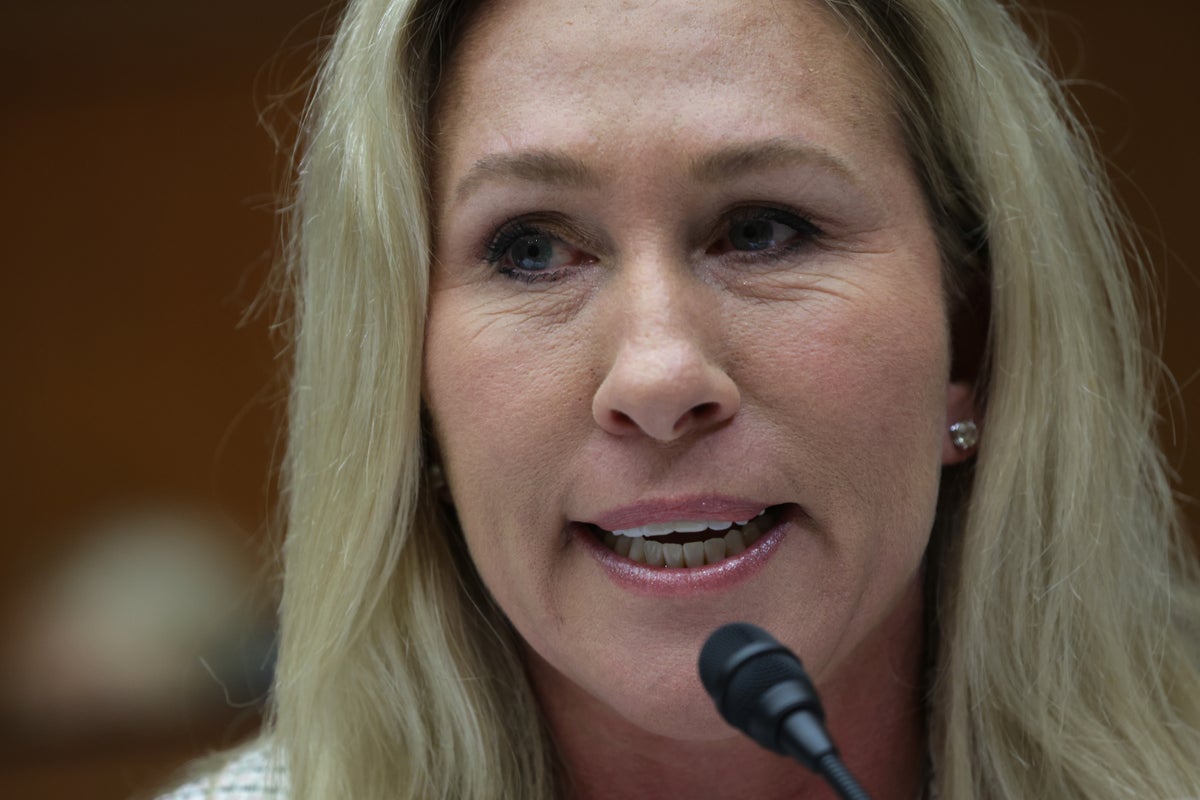
Georgia congresswoman Marjorie Taylor Greene has generated a storm of controversy after calling for a “national divorce” separating red and blue states, with some interpreting the statement as a call for a second Civil War.
“We need a national divorce,” the Republican legislator wrote on Twitter on Monday. “We need to separate by red states and blue states and shrink the federal government. Everyone I talk to says this. From the sick and disgusting woke culture issues shoved down our throats to the Democrat’s (sic) traitorous America Last policies, we are done.”
The statement elicited condemnation from some Democrats, media figures, and anti-Trump Republicans alike.
The Independent has contacted Ms Greene’s office for comment.
“Let’s review some of the governing principles of America,” former GOP representative Liz Cheney wrote on Twitter. “Our country is governed by the Constitution. You swore an oath to support and defend the Constitution. Secession is unconstitutional. No member of Congress should advocate secession, Marjorie.”
“This is a member of the House Homeland Security Committee advocating for Civil War,” added Democratic strategist Kurt Bardella.
Others took a more historical view of the comments.
“The last time we tried this it ended up with Sherman burning her state Capitol,” Stuart Stevens of the Lincoln Project wrote on Twitter in a reference to the Civil War. “We need more AP history, not less.”
“The conservatives who scream loudest about the ‘anti-Americanism’ of the left turn out to be the most anti-American of all,” MSNBC’s Mehdi Hasan wrote on Twitter. “Surprise! Every accusation is a confession.”
Meanwhile, some took a more comic approach to their responses.
Speaking of the “national divorce,” comedian Jon Stewart asked: “But we get to keep the name right?”
The Georgia Republican’s views are representative of a larger current in US political thought.
According to a 2021 poll, support is growing for secession across the country, particularly among southern Republicans.
In the South, 37 per cent of respondents to a Bright Line Watch/YouGov poll said they had a “willingness to secede”.







